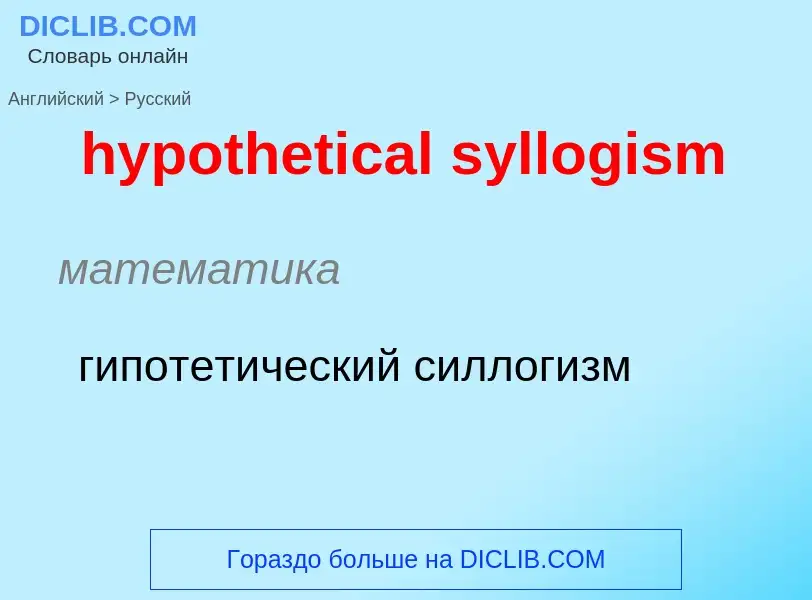Μετάφραση και ανάλυση λέξεων από την τεχνητή νοημοσύνη ChatGPT
Σε αυτήν τη σελίδα μπορείτε να λάβετε μια λεπτομερή ανάλυση μιας λέξης ή μιας φράσης, η οποία δημιουργήθηκε χρησιμοποιώντας το ChatGPT, την καλύτερη τεχνολογία τεχνητής νοημοσύνης μέχρι σήμερα:
- πώς χρησιμοποιείται η λέξη
- συχνότητα χρήσης
- χρησιμοποιείται πιο συχνά στον προφορικό ή γραπτό λόγο
- επιλογές μετάφρασης λέξεων
- παραδείγματα χρήσης (πολλές φράσεις με μετάφραση)
- ετυμολογία
hypothetical syllogism - translation to ρωσικά
математика
гипотетический силлогизм
математика
условный силлогизм
[meidʒə'tə:m]
логика
основное условие (главной посылки)
математика
главный член (силлогизма)
Ορισμός
Βικιπαίδεια

In classical logic, a hypothetical syllogism is a valid argument form, a syllogism with a conditional statement for one or both of its premises.
An example in English:
- If I do not wake up, then I cannot go to work.
- If I cannot go to work, then I will not get paid.
- Therefore, if I do not wake up, then I will not get paid.
The term originated with Theophrastus.
A pure hypothetical syllogism is a syllogism in which both premises and conclusions are conditionals. The antecedent of one premise must match the consequent of the other for the conditional to be valid. Consequently, conditionals contain remained antecedent as antecedent and remained consequent as consequent.
- If p, then q.
- If q, then r.
- ∴ If p, then r.
A mixed hypothetical syllogism consists of one conditional statement and one statement that expresses either affirmation or denial with either the antecedent or consequence of that conditional. Therefore, such a mixed hypothetical syllogism has four possible forms, of which two are valid, while the other two are invalid(See Table). The first way to get a valid conclusion is to affirm the antecedent. A valid hypothetical syllogism either denies the consequent (modus tollens) or affirms the antecedent (modus ponens).



